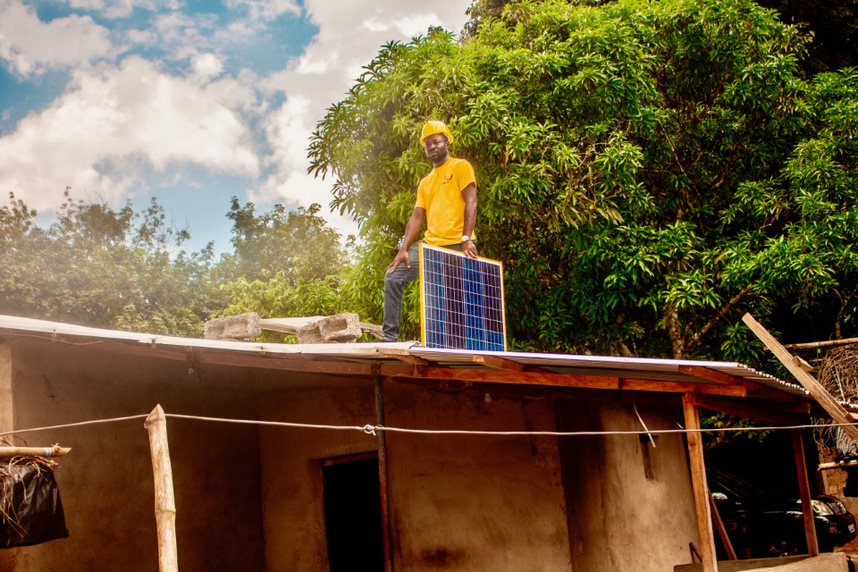Lumos wants to expand the distribution of its solar home systems in Côte d’Ivoire. The Dutch company obtained financing from the Dutch Development Finance Corporation (FMO) to boost the activities of its subsidiary in Côte d’Ivoire. In the rural areas of this West African country, the company has become a pioneer in household electrification through the distribution of solar home systems.
Lumos’ kit is essentially composed of solar panels, inverters, and batteries for storing the electricity needed for lighting after sunset. The small, home-scale grid can provide lighting as well as power and charging for devices such as mobile phones, fans, computers, televisions and other small electronic devices.
Thousands more homes will be electrified in the next few years
The amount of money invested by the FMO in the solar kit supplier was not disclosed, but Renée Comoe Seka, the managing director of Lumos Côte d’Ivoire expressed the importance of the financing from the Dutch development bank. “The new FMO funding will enable hundreds of thousands of people to benefit from reliable, sustainable and affordable energy,” says Renée Comoe Seka.
In concrete terms, Lumos wants to increase the production of its solar home systems tenfold in order to “meet the growing demand from households and businesses throughout the country”. Currently, the company provides electricity to 200,000 people living mainly in rural areas not served by the national electricity grid in Côte d’Ivoire. In this part of the country where the purchasing power of local residents is rather low, Lumos favours pay-as-you-go (pay-per-use). This payment system for small amounts is called “mobile money”, a service provided by the South African operator MTN.
Financing from the Dutch Development Finance Corporation (FMO) strengthens Lumos in the very dynamic solar market in West Africa, with very strong competition between operators. The solar kit supplier is also present in Nigeria, where in December 2019 it obtained a €75 million grant from the Rural Electrification Agency (REA). With this grant, Lumos expects to electrify one million people by 2025 through its solar home systems.
Jean Marie Takouleu
